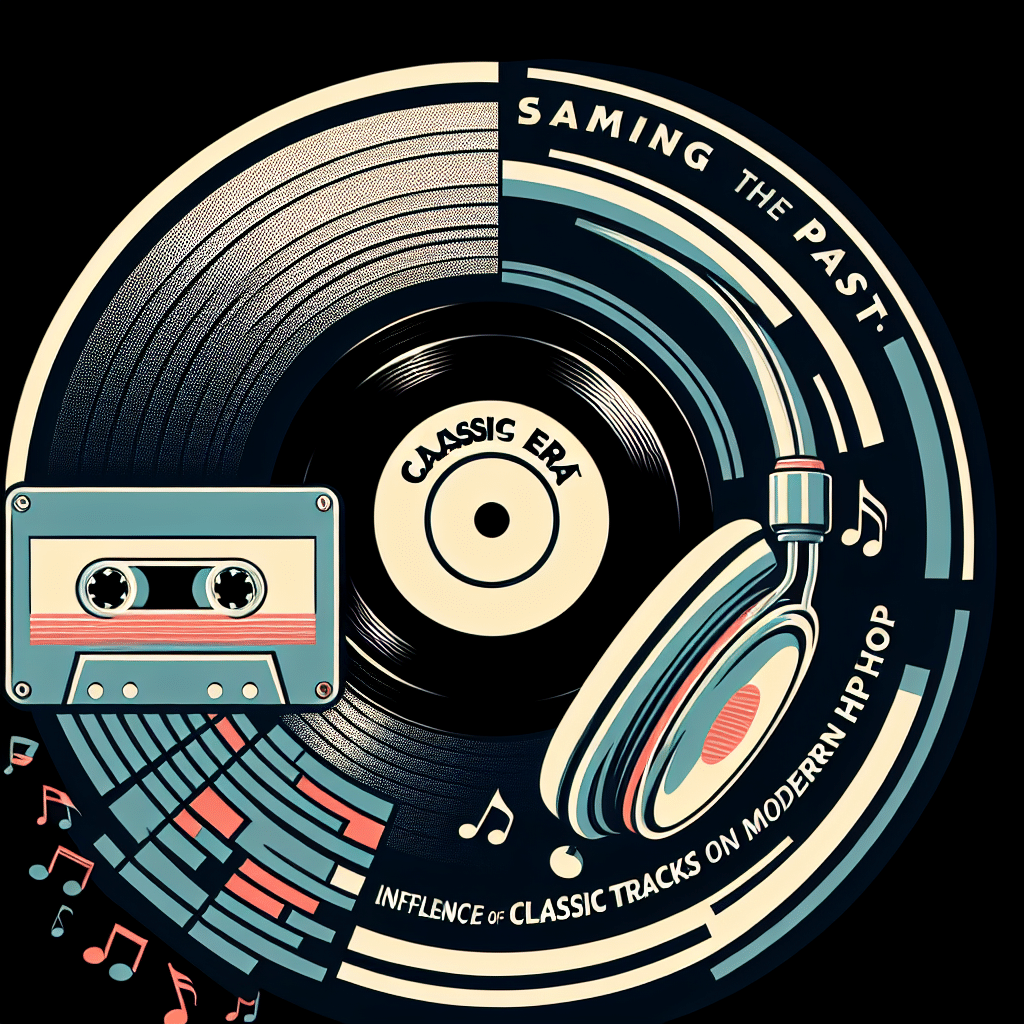Sampling the Past: The Influence of Classic Tracks on Modern Hip-Hop

Introduction
Hip-hop has always been a genre that thrives on innovation, creativity, and a deep connection to its roots. One of the most defining features of hip-hop music is sampling—the practice of taking segments from existing tracks and incorporating them into new productions. This technique not only bridges generations of music but also offers a tribute to the influences and artists that paved the way for modern hip-hop. In this article, we explore the significant impact of classic tracks on contemporary hip-hop, examining how sampling shapes the landscape of this dynamic genre.
The Art of Sampling
Sampling is the process of taking a portion of a sound recording and reusing it in a different song or piece of music. In hip-hop, this often involves short snippets of drum beats, vocal lines, or instrumental melodies. The origins of sampling can be traced back to the early days of hip-hop in the late 1970s and early 1980s, when DJs and producers began looping breaks from funk, soul, and jazz records.
These samples not only add texture and depth to new tracks but also introduce listeners to the rich history of music. Artists often sample well-known songs, allowing them to evoke feelings of nostalgia and familiarity while simultaneously adding their unique twist. This intertextuality creates a dialogue across generations, making the past a vital component of modern production.
See Also: Voices of a Generation: The Top Hip Hop Artists Making Waves in 2023
Voices of a Generation: The Top Hip Hop Artists Making Waves in 2023Classic Genres as Staples
Sampling allows contemporary artists to draw from a diverse array of genres. Soul, jazz, funk, and even rock frequently serve as the backbone of modern hip-hop tracks. For instance, artists like J Dilla and DJ Premier are renowned for seamlessly integrating classic soul and jazz sounds into their production.
One notable example is Kanye West’s "Through the Wire," which features a sample from Chaka Khan’s "Through the Fire." This not only showcases West's ability to blend his narrative with a timeless classic but also pays homage to the vocal prowess and emotional depth of Khan’s original work.
The Impact of Classic Tracks on Modern Artists
The influence of classic tracks permeates the entire hip-hop landscape. Many contemporary artists openly pay homage to the legends who came before them by incorporating distinctive samples into their work. This practice not only fosters respect for earlier artists but also helps modern listeners discover and appreciate the roots of their favorite tracks.
See Also: The Science of Groove: What Makes a Hip Hop Beat Irresistible?
The Science of Groove: What Makes a Hip Hop Beat Irresistible?Some Significant Examples:
Nas – “The World Is Yours”
Sampling "I Love Music" by Ahmad Jamal, Nas’s track is an anthem that reflects on his aspirations and struggles growing up in New York City. The mellow jazz piano and the flowing rhythm symbolize both the hardships and the hopes of a young artist forging his path.Kendrick Lamar – “The Art of Peer Pressure”
Lamar's song is built around a sample from "Smoke Gets in Your Eyes" by The Platters. This choice adds a layer of emotional complexity, creating a juxtaposition between the wistful melody and the gritty narrative of Lamar’s experiences.- Dr. Dre – “Nuthin' but a 'G' Thang”
Featuring a sample from Leon Haywood's "I Want'a Do Something Freaky to You," this iconic track not only helped define the West Coast sound but also solidified the importance of funk elements in hip-hop.
Sampling Battles and Legal Challenges
While sampling offers rich textures and a connection to music history, it also presents challenges, especially in terms of copyright. Many artists face legal hurdles as they navigate the complex landscape of music rights. High-profile cases, such as those involving The Beastie Boys or Vanilla Ice, have raised awareness about the need for fair use legislation and have led to changes in how sampling is approached.
Consequently, some artists have opted for "clearance"—seeking permission from original artists to legally use samples. Others, however, take a more contentious route, sampling without permission and facing potential lawsuits, thus creating an ongoing debate about artist rights and the ethics of sampling.
The Psychology of Sampling
Sampling taps into a deep psychological connection that people have with music. Tracks that incorporate classic samples often evoke nostalgia, reminding listeners of their past experiences or the cultural contexts that shaped them. This emotional resonance can make a song more impactful, as it combines new storytelling with familiar sounds that resonate deeply with audiences.
See Also: Beyond Bars: How Hip-Hop Is Shaping Social Justice Movements
Beyond Bars: How Hip-Hop Is Shaping Social Justice MovementsMoreover, sampling can serve as a form of cultural commentary. By re-contextualizing classic tracks, contemporary artists can comment on social issues, personal experiences, and transitions within hip-hop itself.
Conclusion: The Importance of Sampling the Past
Overall, the influence of classic tracks on modern hip-hop is profound and multifaceted. Sampling serves as a bridge between generations, enabling contemporary artists to honor their predecessors while innovating within the genre. This practice enriches the listening experience, allowing fans to discover a historical legacy that spans decades.
As hip-hop continues to evolve, the role of sampling will remain integral, not only in producing unique sounds but also in crafting narratives that reflect the socio-cultural landscapes of both past and present. In essence, sampling is not just a technique; it is a vital commentary on the evolution of music, culture, and society.
FAQs
See Also: Sampling in Hip Hop: Artistry or Appropriation?
Sampling in Hip Hop: Artistry or Appropriation?Q: What is sampling in music?
A: Sampling is the technique of taking a portion of an existing sound recording and incorporating it into a new musical composition.
Q: Why is sampling important in hip-hop?
A: Sampling is important because it connects modern hip-hop to its roots, allows for cross-genre experimentation, and evokes nostalgia, enriching the listening experience.
See Also: Melodies of a Generation: Top 10 R&B Classics You Still Can't Resist
Melodies of a Generation: Top 10 R&B Classics You Still Can't ResistQ: Are there legal issues surrounding sampling?
A: Yes, sampling often involves complex copyright laws, as artists must either seek permission or clear samples with the original artists to avoid legal disputes.
Q: Can sampling change the meaning of a song?
A: Absolutely. Sampling can alter the context of a sample by re-contextualizing it within a new narrative, allowing artists to comment on various social issues or personal experiences.
See Also: Digging for Gold: How Vinyl Sampling Influences Modern Hip Hop Beats
Digging for Gold: How Vinyl Sampling Influences Modern Hip Hop BeatsQ: Can modern hip-hop exist without sampling?
A: While it’s possible for hip-hop to exist without sampling, the practice has been so integral to the genre's development that it would fundamentally change its nature and the connections it creates across different eras of music.
If you want to know other articles similar to Sampling the Past: The Influence of Classic Tracks on Modern Hip-Hop you can visit the category Hip Hop.
